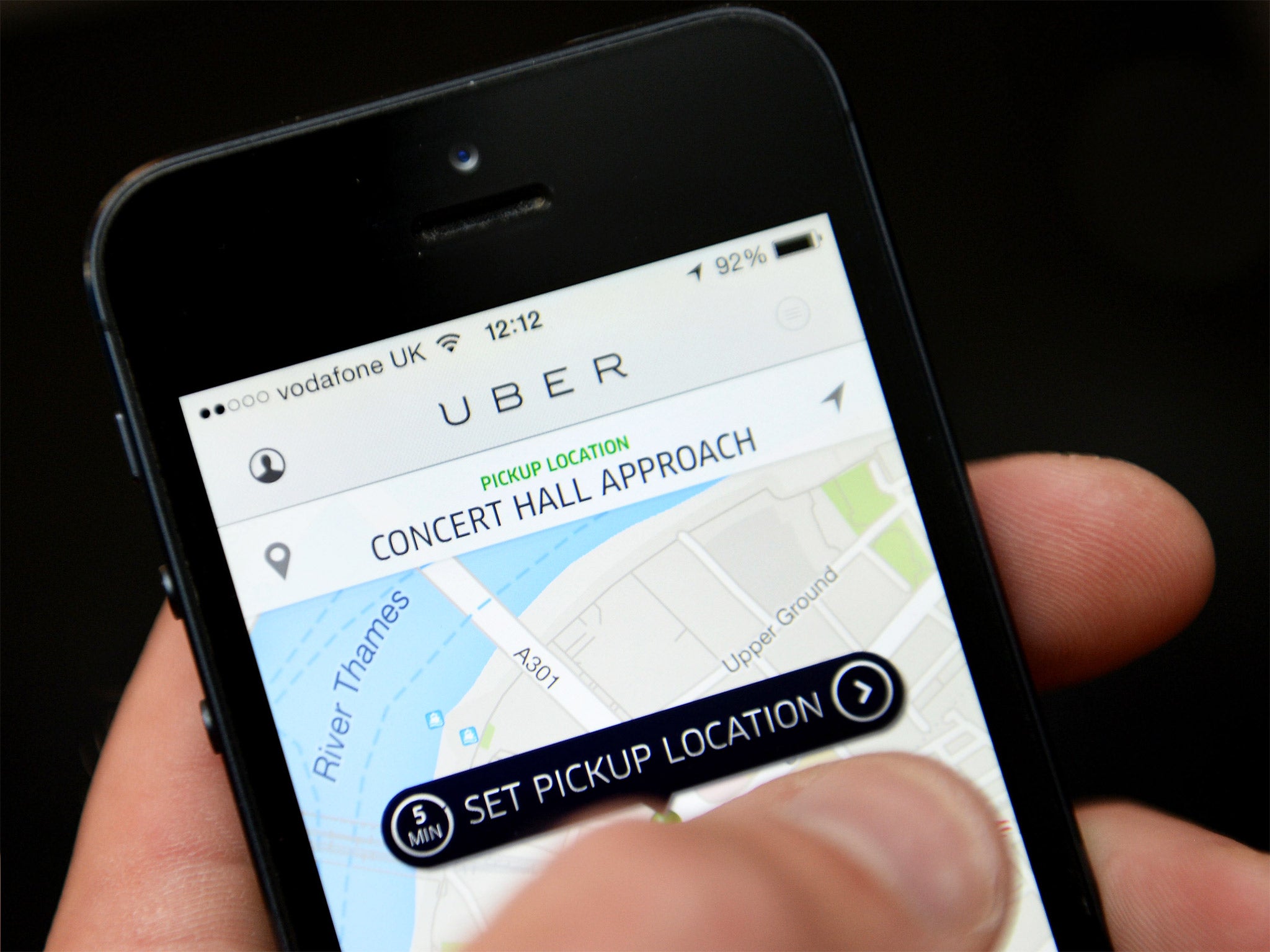French cabbies want Uber off the streets – but that particular boat has sailed
No amount of strike action can reverse Uber's upper hand


Your support helps us to tell the story
From reproductive rights to climate change to Big Tech, The Independent is on the ground when the story is developing. Whether it's investigating the financials of Elon Musk's pro-Trump PAC or producing our latest documentary, 'The A Word', which shines a light on the American women fighting for reproductive rights, we know how important it is to parse out the facts from the messaging.
At such a critical moment in US history, we need reporters on the ground. Your donation allows us to keep sending journalists to speak to both sides of the story.
The Independent is trusted by Americans across the entire political spectrum. And unlike many other quality news outlets, we choose not to lock Americans out of our reporting and analysis with paywalls. We believe quality journalism should be available to everyone, paid for by those who can afford it.
Your support makes all the difference.I write this column today from France, from the frontline of the battle between protectionism and free market economics, between traditional labour practices and the digital economy, between the old France and the new world.
More pertinently, however, I write this column not having a clue about how I’m going to get back home later on today. This, we know, is the season when French air traffic controllers generally work to rule, but today the trouble is on the ground, and it’s the taxi drivers who are revolting, disrupting travel up and down the country.
Nice airport, among several others in France, is being blockaded by licensed taxi drivers who are protesting about the threat to their livelihood posed by the rise of Uber. Elsewhere, major routes – including the main ring road in Paris – have been blocked at rush hour, and what we know is that when French workers strike, they tend to be effective. They know about fraternité here.
Notwithstanding the severe inconvenience this day of action has caused, however, it is impossible not to feel some sympathy for the French cabbies, who are fighting this battle on behalf of taxi drivers everywhere. It costs around €200,000 (£142,000) to get a licence to drive taxis in France, and the existential threat they face from the unlicensed drivers of Uber who need only a car, a mobile phone and a sat nav to set up in business is a very real one.
This sympathy is tempered, of course. As a service, Uber is efficient, the drivers tend to be polite – a recent poll of British travellers rated Parisian cabbies as the rudest in the world – and, not least, it’s cheaper. But this is about so much more than the most effective way of getting from A to B. One of the barriers to France’s economic progress, we are told, is their highly unionised labour force and the protected practices in many of their trades (even though France has higher productivity figures than Britain). Yet the tensions exposed in this particular dispute are about how the digital world has opened up choice and increased convenience for consumers, and the effect this has had, in all sorts of areas, on our traditional customs and practice.
There is, in one sense, a pointlessness about the taxi drivers’ action. They might as well complain about the invention of the computer. Maybe bookshops should get together and put piles of novels in Piccadilly to stop the traffic in protest against Amazon. Or musicians could refuse to play again until music streaming services are shut down.
The French cabbies want Uber off the streets, and their challenge is now working its way through the French legal system. It seems unlikely, given European regulations on competition, that they will be successful. London cabbies have also protested against Uber, but I can’t help feeling that this particular boat has sailed, so to speak. The consumer is king today. The opening up of markets, and the greater competition as a result, has brought real benefits for consumers, whose decisions are primarily based on value and convenience.
On both these counts, Uber seems to have the upper hand, and no amount of strike action, or indeed socio-economic engineering, can reverse that.
Join our commenting forum
Join thought-provoking conversations, follow other Independent readers and see their replies
Comments